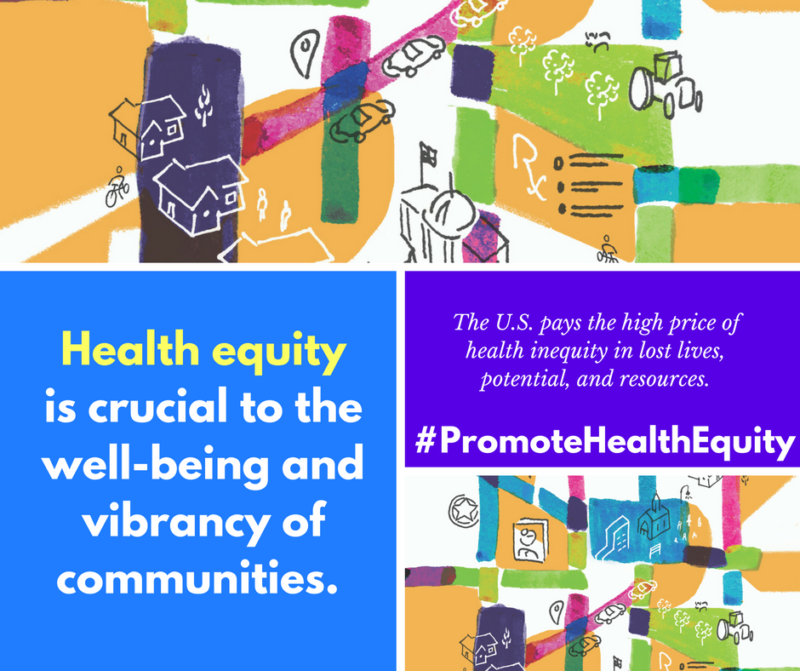
Share On Social!
Despite being the country’s largest racial/ethnic group, Latinos suffer from “vast differences” in health conditions compared to whites. These health disparities prevent many Latinos from attaining quality health and well-being, educational achievement, and financial success.
A new report from The National Academies of Sciences, Engineering, and Medicine entitled Communities in Action: Pathways to Health Equity addresses the roles that communities can play in helping people achieve health equity.
By linking health equity with opportunity, the research for the report has shown that problems ranging from poverty, unemployment, low educational attainment, inadequate housing, and a lack of public transportation among many other factors.
In order to reduce health disparities, it is critical to address inequities in programs, practices, and policies. Join our site, connect with others, and get involved.
In the U.S., the burden of poor health is inequitably distributed among low-income and ethnic and racial minority households. The researchers of the report have determined that community action is a “necessary and essential” ingredient to attaining health equity for everyone.
Health disparities in the U.S. are extremely costly, A 2009 analysis found that by eliminating health disparities for minorities would have reduced direct medical care costs by $229.4 billion from 2003-2006 alone.
“Health inequities are a problem for us all — the burden of disparities in health adversely affects our nation’s children, business efficiency and competitiveness, economic strength, national security, standing in the world, and our national character and commitment to justice and fairness of opportunity,” said James Weinstein, CEO and president of the Dartmouth-Hitchcock health system and committee chair in charge of the report. “It is the committee’s hope that this report will inform, educate, and ultimately inspire others to join in efforts across the nation to achieve America’s promise for all the people of this country.”
The researchers highlight promising community-based solutions, such as policies, partnerships, and other “elements” needed to be successful.
The committee identified nine examples of community-based solutions that address health inequities. All nine examples share three elements in the report’s conceptual model: making health equity a shared vision and value, fostering multi-sector collaboration, and increasing community capacity to shape outcomes.
These examples include:
- Delta Health Center in Mound Bayou, Miss. This is the first federally qualified rural health center that employs a community-oriented primary care model and addresses health-related factors such as transportation and food.
- Eastside Promise Neighborhood in San Antonio, Texas. This program implements programs that develop collaborative solutions to address barriers to education.
- Magnolia Community Initiative in Los Angeles, Calif. An initiative that seeks to increase “social connectedness, community mobilization, and access to vital supports and services to improve health outcomes for children.”
- People United for Sustainable Housing in Buffalo, New York. This nonprofit organization mobilizes area residents to secure quality, affordable housing and advance “economic justice.”
“All actors in society— residents and community-based organizations, in partnership with businesses, state and local government, anchor and faith-based institutions—have the power to change the narrative and help promote health equity,” the report states.
Download or order the report here.
Read stories similar to this one:
- A new report identifies “root causes” of #HealthInequities. #SaludAmerica #HealthEquity salud.to/2ktg1gp
- The achievement gap for ELL-Latino students is widening. #SaludAmerica #HealthEquity salud.to/2iPbAv7
Explore More:
Healthcare AccessBy The Numbers
25.1
percent
of Latinos remain without health insurance coverage



